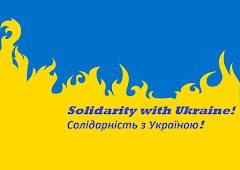| Romania and the United Nations reform |
| by Nicolae Idu After Romania joined NATO in 2002 and EU membership became an increasingly realistic target, its involvement in UN operations and other multinational peace-keeping activities has become an important component of its foreign policy. Despite the scarcity of its financial resources, budgetary constraints and some public criticism, this involvement will be increased upon assumption of EU membership obligations. It is true that Romania is accused of certain transatlantic tendencies, given its special security arrangements with the United States. However, if this is the case, it is because the Union still lacks consensus and coherence on its own international and security policy. Nevertheless, Romania's President, Traian Basescu, stated at the High Level Plenary Session of the General Assembly of UN on September 14th, 2005 that "Romania aligns fully with our (European) Union and the successive Presidencies that will deal with the UN reform". He went on to characterise the UN as "the centrepiece of the multilateral system"; an echo of the term "effective multilateralism", the leitmotif of the 2003 European Security Strategy.
As a medium-sized country with a European hat, Romania constantly supported the UN reform process, advocating more efficient use of the organisation's internal resources, eliminating duplications, efficient management of the flow of documents between the UN Secretariat, better use of the human resources, a strict financial control with an emphasis on the assessment of the cost/benefit ratio. According to the Romanian Ministry of Foreign Affairs one can add some other topics, such as reviewing the organisation's mandates, rejuvenating the General Assembly, enhancing consistency of the development, humanitarian assistance and environment systems.
As a member of the Security Council between 2004 and 2005, Romania made a real contribution to enforcing the provisions of the Final Document concerning the regional organisations by promoting a draft resolution on the UN's cooperation with regional organisations in stabilisation and post-conflict reconstruction processes. It was the first time in the history of this UN body that such a subject was broached.
During this period Romania was also involved in the debates regarding the Security Council reform with a view to increasing its representativeness and efficiency. Currently, the European membership of the Security Council covers more than 30 percent of the voting rights; the U.K. and France as permanent members, and Greece, Denmark (‘Western European and others') and Slovakia (eastern European) as non-permanent members. Ulrike Guerot and Antonio Missiroli underlined last year in the European Voice that the five countries represent less than one-twelfth of the world population. As has been demonstrated in the past, European countries, particularly France and the U.K., are not always in agreement when speaking and voting in the Council meetings. Therefore, on medium and long-term, for a country like Romania, ranking seventh among the future 27 member states according to the nominal voting power, one single seat for EU in the Security Council could be a solution to maximize its influence on global politics. Additionally, this would be in line with Romania's initiative to promote regional organisations' involvement in UN affairs, including the opportunity for a better representation of Asia and Africa in the UN structures.
During the elections in May of this year Romania gained membership of the Human Rights Council. An important task and test for the Council will be the setting-up of the universal periodic review system to investigate and assess the human rights standards around the world. Romania does not believe that the relocation of this function outside of the UN framework was a consequence of the Council's lack of credibility. However, according to the 2006 Index of Economic Freedom, published by the Heritage Foundation and the Wall Street Journal, less than half of the UN membership is economically "free" or "mostly free". So, who is judging whom?
Romania realises that effective protection against security threats means facing up to them with resolute action and sustained investment. For President Basescu, this is "the rationale for Romania's joint endeavours with partners and allies in shouldering the burden of stabilisation and reconstruction in Iraq and Afghanistan". There are over 2,000 Romanian peacekeepers on duty around the world, which makes the country a major contributor in a wide range of UN-mandated and UN-authorised operations. As a future EU member state, Romania would not encourage the deployment of EU Rapid Reaction Forces around the world without the consent of the UN, but it is in favour of setting up a rapid consultation procedure in order to align the EU troops actions with the UN decision principles and objectives. The increasing threat of international terrorism in Europe may at some stage change the rules of the game and under these circumstances Romania will not hesitate to adapt to that new reality. > Email to Nicolae Idu Sursa |
miercuri, 23 iulie 2008
Romania si Reforma Natiunilor Unite
Abonați-vă la:
Postare comentarii (Atom)


Niciun comentariu:
Trimiteți un comentariu